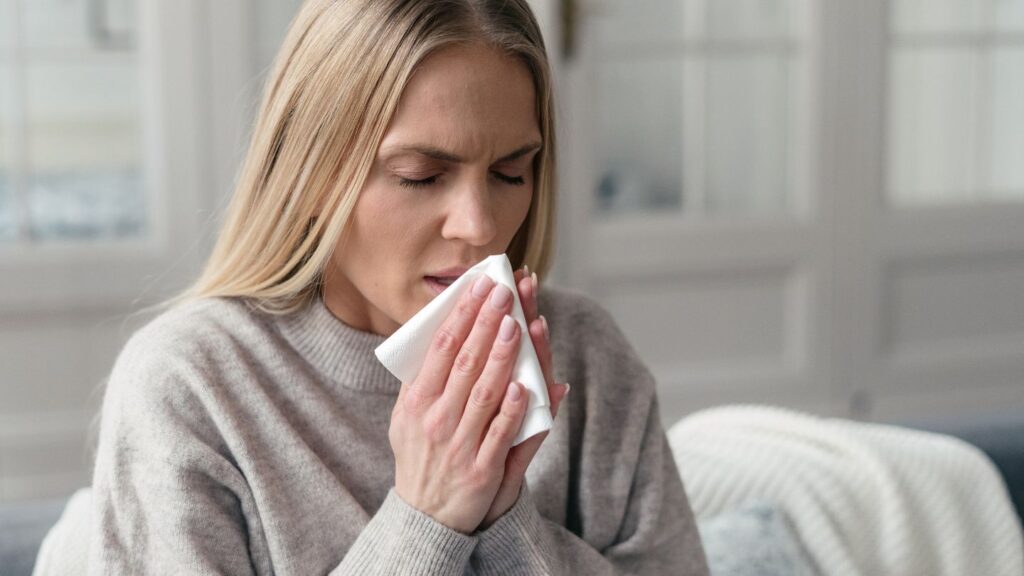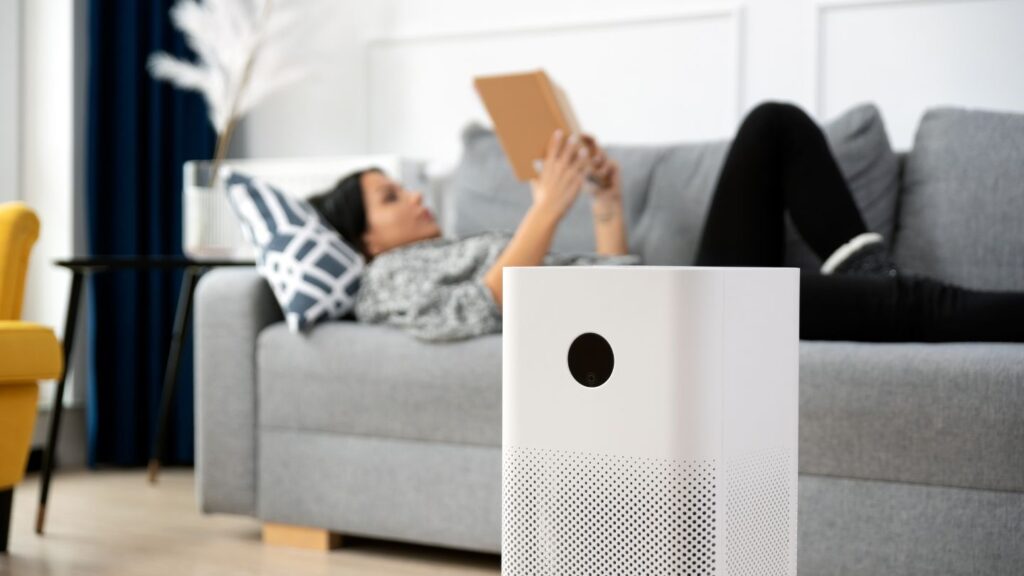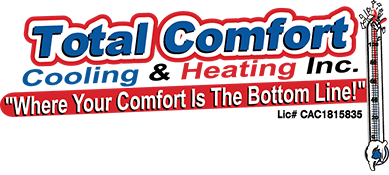Why Does Indoor Air Quality Matter in Winter? Top Reasons to Know
As temperatures drop and we spend more time indoors, the quality of the air inside our homes becomes more important than ever. During winter, closed windows and increased heating can lead to a buildup of pollutants, allergens, and stale air, all of which can impact your health and comfort. Understanding why indoor air quality matters in winter is essential for creating a healthier living environment. Let’s explore the key reasons you should prioritize clean indoor air this season.
Key Takeaways
- Indoor air quality often worsens in winter due to sealed homes trapping pollutants and improper ventilation, leading to increased health risks.
- Regular maintenance of HVAC systems and the use of air purifiers are essential strategies for improving indoor air quality during the winter months.
- Choosing non-toxic cleaning products can significantly reduce harmful indoor pollutants and support a healthier living environment.
The Impact of Winter on Indoor Air Quality
The arrival of winter brings with it unique challenges that can negatively impact the quality of indoor air. The frigid and icy conditions often compel us to keep our windows and doors shut tight, hindering proper ventilation and magnifying issues related to indoor air pollution. Insulating homes against the cold effectively traps pollutants within, substantially affecting the healthiness of the air we inhale.
While heating systems are vital for maintaining warmth, they also play a role in contributing to pollution inside our homes. Engaging these systems along with regular cooking activities during winter releases particles, smoke, and gases into our living spaces, Degrading the freshness of indoor air. This combination—of an enclosed space coupled with sources emitting contaminants—sharpens concerns regarding breathable air indoors throughout colder periods.
Due to diminished fresh airflow on account of closed windows and doors as well as drying effects from heating appliances—a significant challenge arises in sustaining a wholesome indoor atmosphere. Inadequate ventilation leads to dust particles, animal dander, and volatile organic compounds (VOCs), among other pollutants. This often results in poorer internal atmospheric quality than what is observed outside. Acknowledgment of these factors is pivotal when confronting various complications associated with winter’s influence on interior aerate environments—the very essence underlying considerations around maintaining clean breathing spaces at home during this season.
Health Implications of Poor Indoor Air Quality in Winter

Indoor air quality can have a significant impact on health, particularly during the winter when it may be up to five times more contaminated than outdoor air. Those with existing respiratory conditions might experience severe allergic reactions or asthma flare-ups due to exposure to indoor pollutants.
The presence of biological contaminants such as bacteria, dust mites, and mold spores is heightened in sealed-off environments, which are common in colder months, aggravating cardiovascular symptoms and causing persistent respiratory issues along with other health complications. Consequently, there’s often a rise in hospital admissions for breathing-related ailments tied to these airborne pollutants throughout the winter season.
Cleaning products typically used in winter can contain harsh chemicals like ammonia and synthetic fragrances that contribute to skin irritation and respiratory problems. Opting for non-toxic cleaning agents helps prevent chronic breathing difficulties and allergies associated with standard cleaning solutions. Maintaining fresh HVAC filters aids in reducing allergen accumulation, which promotes cleaner airflow within homes, leading to improved overall well-being.
Common Indoor Pollutants During Winter
During the winter, indoor air quality can deteriorate due to an increase in various common pollutants. The accumulation of dust mites, pet dander, mold spores, and volatile organic compounds is particularly pronounced during the colder months when homes are sealed tightly to preserve heat.
The act of cooking and utilizing heating systems may lead to a rise in airborne particulate matter within our living spaces. Improperly ventilated heating systems have the potential to emit carbon monoxide—a hazardous indoor pollutant—thereby posing grave health hazards. To mitigate these risks and maintain air quality at optimal levels, it’s crucial to perform regular cleaning and upkeep of both your residence and its heating apparatuses.
Investing in an air purifier featuring a HEPA filter is one strategic approach for effectively eradicating a vast array of airborne contaminants. Air purifiers equipped with True HEPA filters boast an impressive efficacy rate—they capture up to 99.97% of particles floating through the air—and thus play a significant role in enhancing indoor air quality. Using natural cleaners derived from plant-based sources also contributes positively since they avoid releasing harmful VOCs into your home’s atmosphere as they work towards improving overall indoor air conditions.
Practical Tips to Improve Indoor Air Quality in Winter

Enhancing the quality of indoor air throughout the winter can be a daunting task, yet it is completely achievable with appropriate measures. Routine replacement of HVAC filters, employing air purifiers, and keeping humidity levels in check are all effective methods to adopt.
By taking these steps, you will significantly decrease the presence of indoor pollutants and promote a healthier living space for yourself and your loved ones.
Change HVAC Filters Regularly
During the winter months, consistently replacing air filters in your HVAC system is crucial for trapping and eliminating accumulated airborne particles that can build up when homes are closed off from outside air. By regularly updating these filters, you effectively seize allergens and other contaminants, which enhances the quality of indoor air. Maintaining clean filters boosts your HVAC system’s performance by preventing blockages that impede airflow.
To ensure a healthy atmosphere inside during colder seasons, it’s essential to diligently maintain your HVAC unit with prompt filter changes. Proper maintenance guarantees the smooth functioning of the system, leading to efficient distribution of clean air throughout indoor spaces and elevating overall air quality.
Maintain Proper Humidity Levels
Maintaining appropriate humidity is crucial for enhancing the quality of indoor air, especially in the winter months. The optimal range for indoor humidity during this season falls between 30% and 50%. Keeping the humidity levels within these limits can reduce respiratory issues and prevent skin from becoming dry.
Employing humidifiers helps maintain steady moisture levels indoors, thereby mitigating the desiccating effects induced by heating systems. To ensure that humidifiers function effectively throughout winter, it’s advised to change their filters every one to three months.
Sustaining proper humidity not only fosters comfort but also deters the proliferation of mold and dust mites, thus promoting a more healthful indoor air environment.
Ventilation Strategies for Fresh Air Exchange

During the winter months, it is essential to focus on improving indoor air quality because homes are tightly sealed to preserve heat. Employing a combination of natural and mechanical ventilation methods can significantly enhance the exchange of stale indoor air with fresh outdoor air.
To delve deeper into these approaches, let’s examine each strategy closely.
Utilize Mechanical Ventilation Systems
Mechanical ventilation systems efficiently exchange stale indoor air for fresh outdoor air, effectively preserving warmth in the process. They stand out as effective means of maintaining good indoor air quality during winter while mitigating energy waste.
By balancing both temperature control and indoor air quality, these systems facilitate airflow that retains heat. Through mechanical ventilation, there is a steady influx of fresh outdoor air that enhances the atmosphere indoors without sacrificing the comfort provided by retained heat.
Open Windows Strategically
Allowing windows to open during periods of warmer weather promotes air exchange without substantially losing heat. This process aids in circulating fresh air, rejuvenating the indoor atmosphere, and diminishing the accumulation of indoor pollutants.
Cracking open windows at the warmest times can revitalize the quality of indoor air while minimally affecting heating expenses. Employing this straightforward technique significantly improves the quality of air indoors throughout the winter season.
Importance of Regular HVAC Maintenance
Ensuring the functionality of heating and ensuring clean air circulation in winter is achieved through regular maintenance of HVAC systems. Inspections can detect safety hazards, including possible leaks of carbon monoxide—a significant risk when homes are tightly sealed.
By adhering to detailed maintenance plans for your HVAC system, you not only prolong its life and reduce energy consumption by averting blockages that impede airflow but also enhance indoor air quality. This improvement is primarily due to the routine swapping out of filters, which effectively traps airborne pollutants.
Closing Thoughts on Winter Indoor Air Quality
Maintaining indoor air quality during the colder months is crucial for your overall health and comfort. Winter’s sealed environments and limited ventilation can lead to a buildup of harmful pollutants, but taking simple steps like changing HVAC filters, using air purifiers, and managing humidity levels can make a significant difference. Prioritizing clean, healthy indoor air ensures a more comfortable and safer living space for you and your family.
At Total Comfort Cooling & Heating Inc., we understand the importance of high-quality air and efficient systems during the winter season. As trusted experts in providing HVAC services in Port Charlotte, we are here to help you create a healthier home environment. From professional HVAC maintenance to advanced heating and cooling solutions, we offer comprehensive services to meet your needs. Don’t wait—let us help you improve your indoor air quality this winter!
Frequently Asked Questions
Why is the air different in winter?
In winter, the character of the air changes mainly because the cooler and denser air near the surface forms a pronounced temperature inversion by lying beneath a layer of warmer air. This occurrence is driven by the sun’s reduced elevation in the sky during this season, which leads to less warmth reaching ground level.
What are common indoor pollutants during winter?
During the winter season, typical indoor contaminants such as dust mites, pet dander, mold spores, volatile organic compounds (VOCs), and carbon monoxide are present.
It is essential to tackle these pollutants in order to preserve a healthy living space indoors.
How often should HVAC filters be changed during winter?
HVAC filters should be changed every 1 to 3 months during winter to effectively capture airborne pollutants.
This maintenance ensures optimal system performance and indoor air quality.
READY FOR YOUR NEXT HEATING OR COOLING PROJECT?
Contact us to get a quote and see why our customer service is recognized as the best in the industry.




